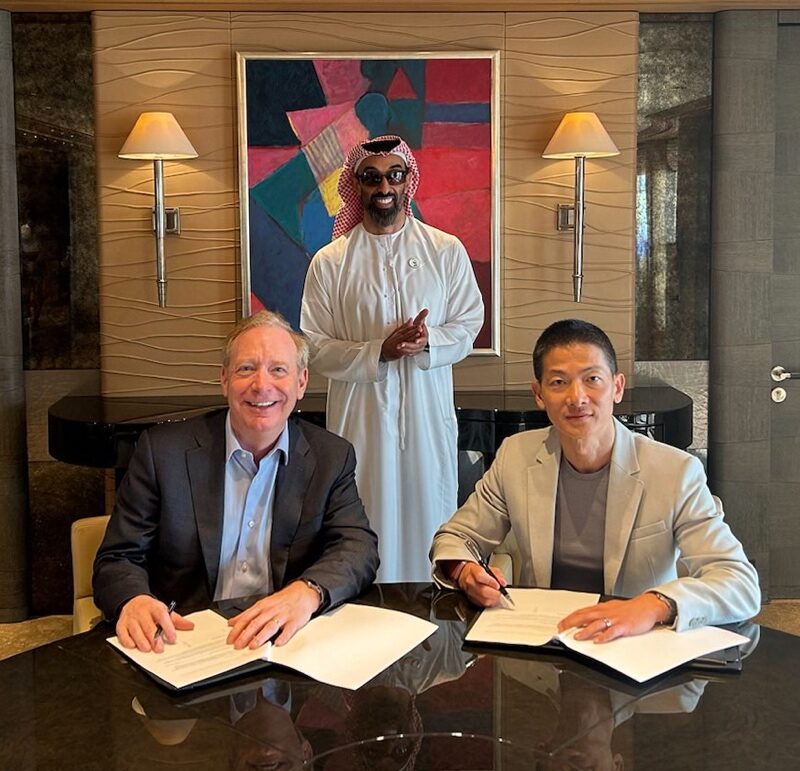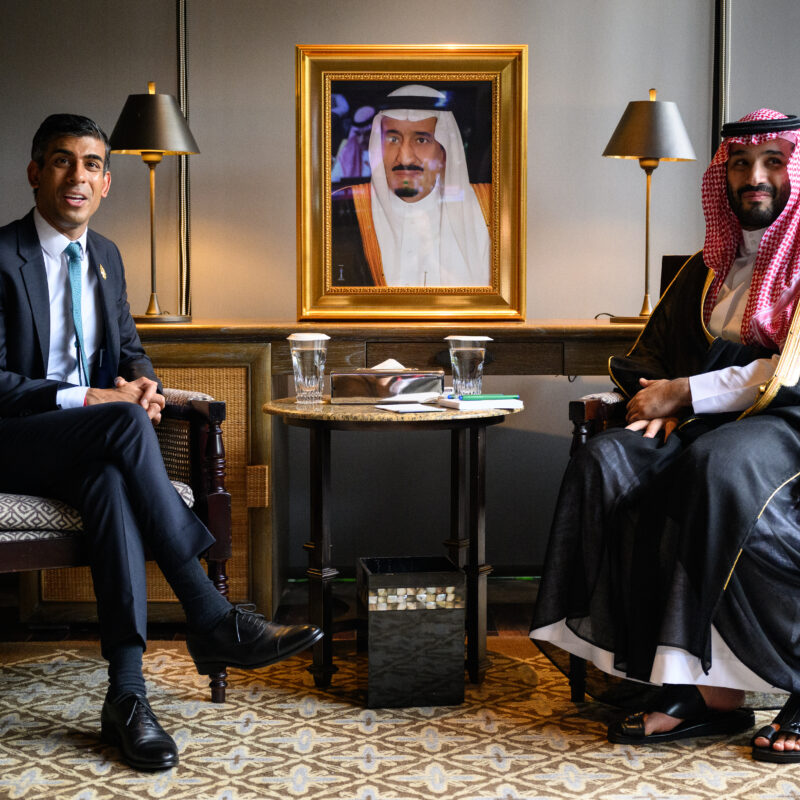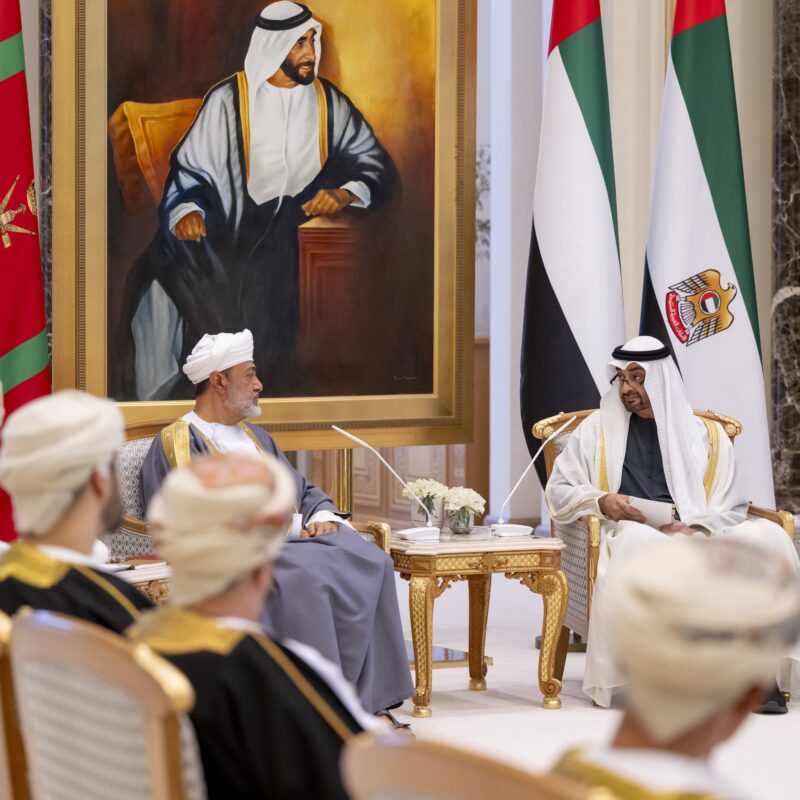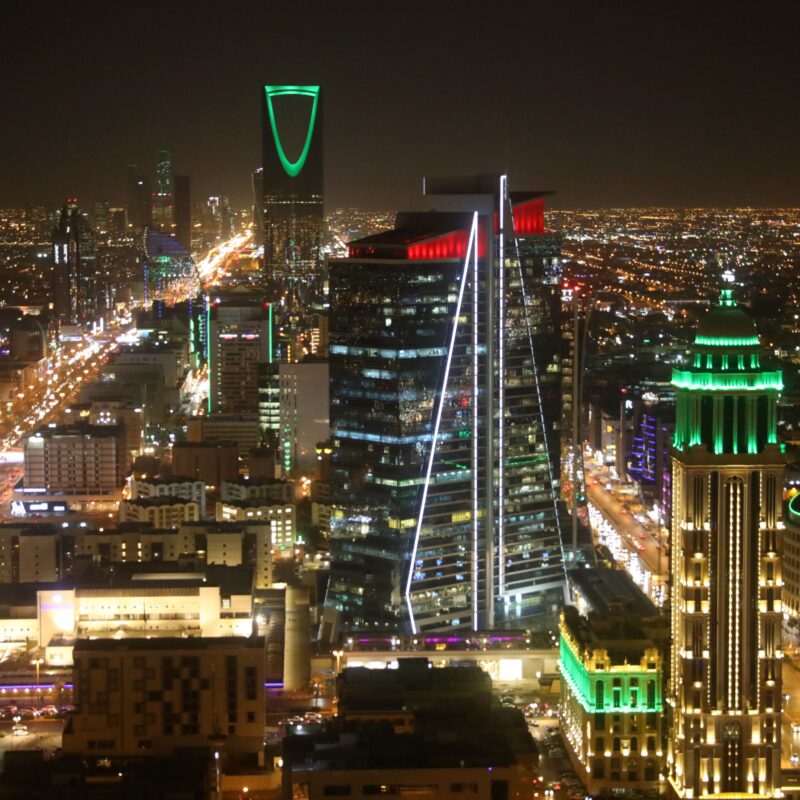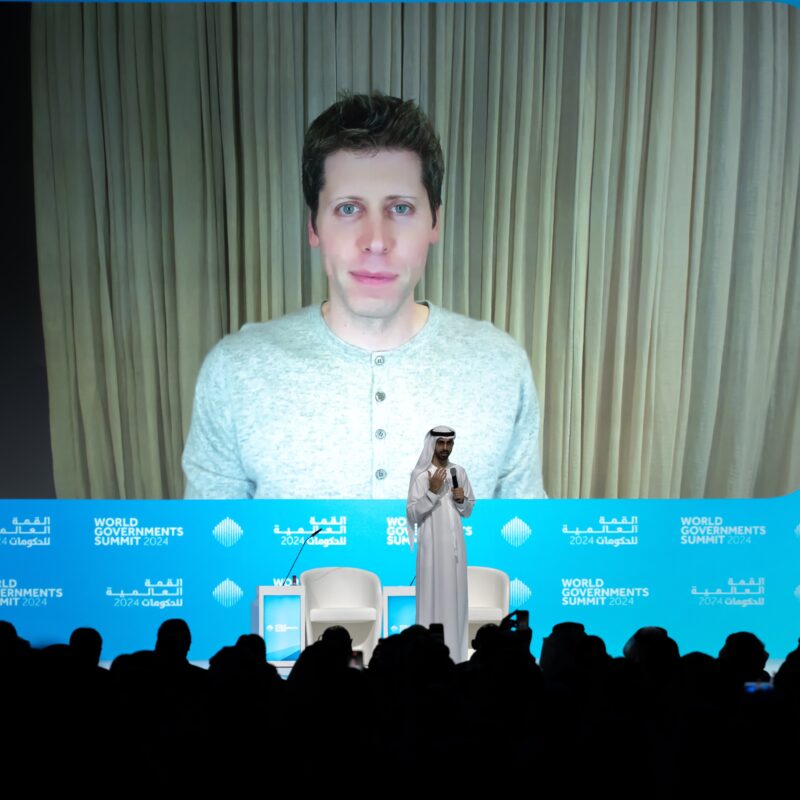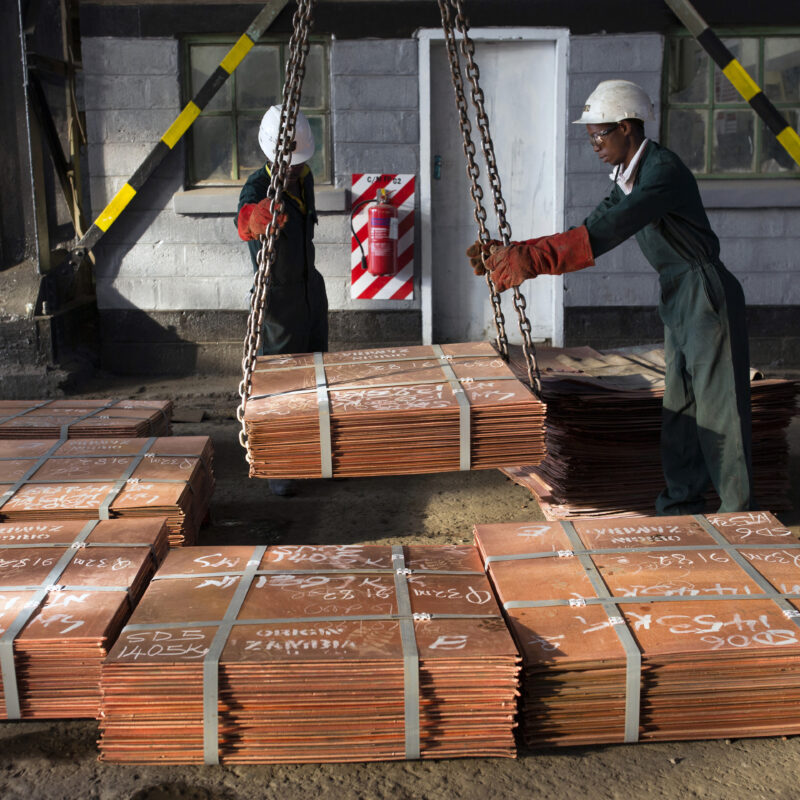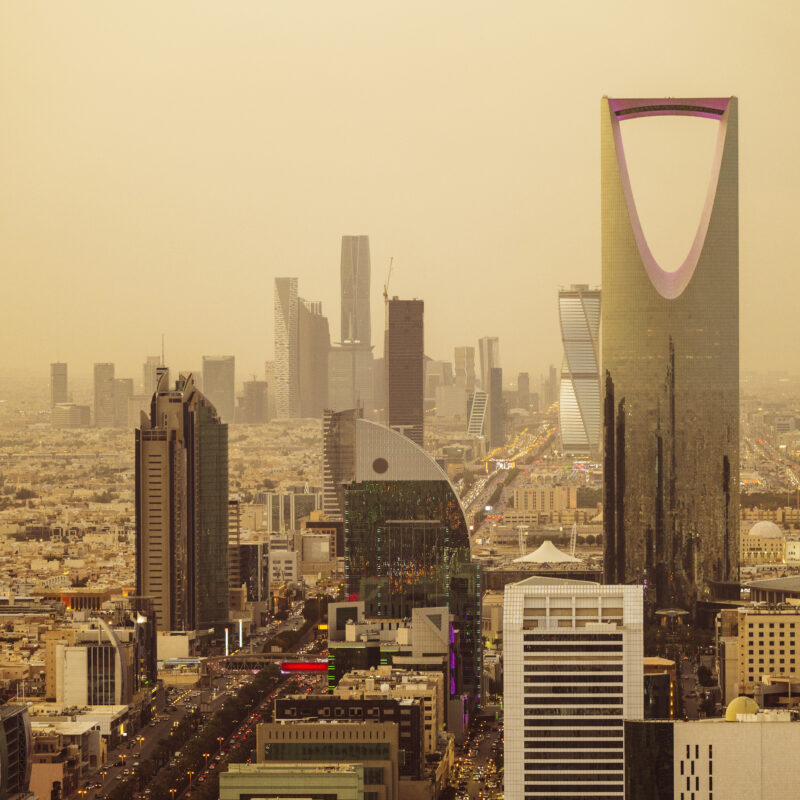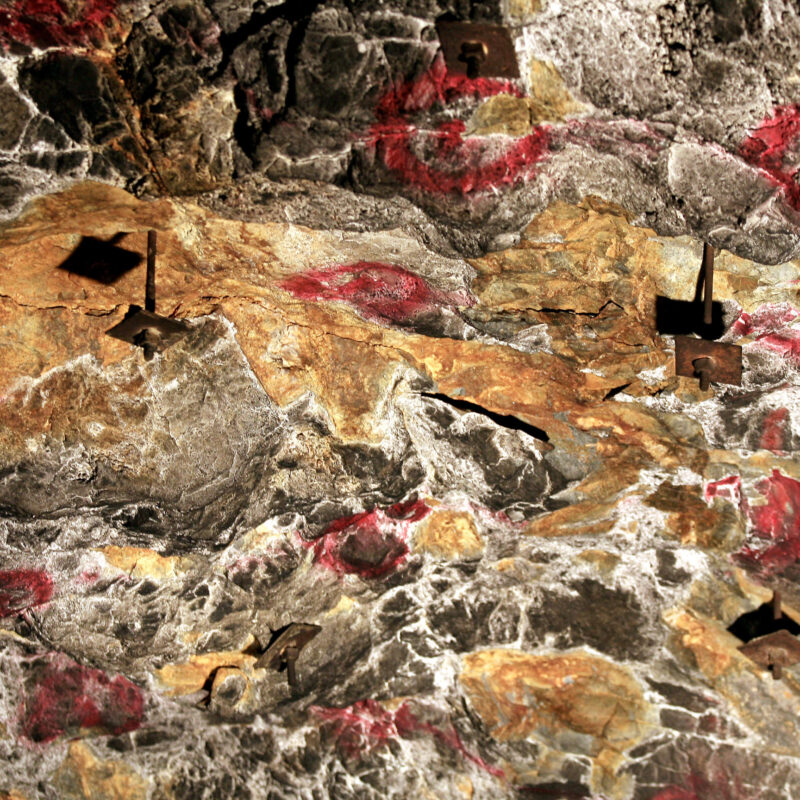Business councils promote pact linking UAE, Israel, India and U.S.
I2U2 initiative gets support at Washington event from commercial organizations pledging to help boost trade between the four countries
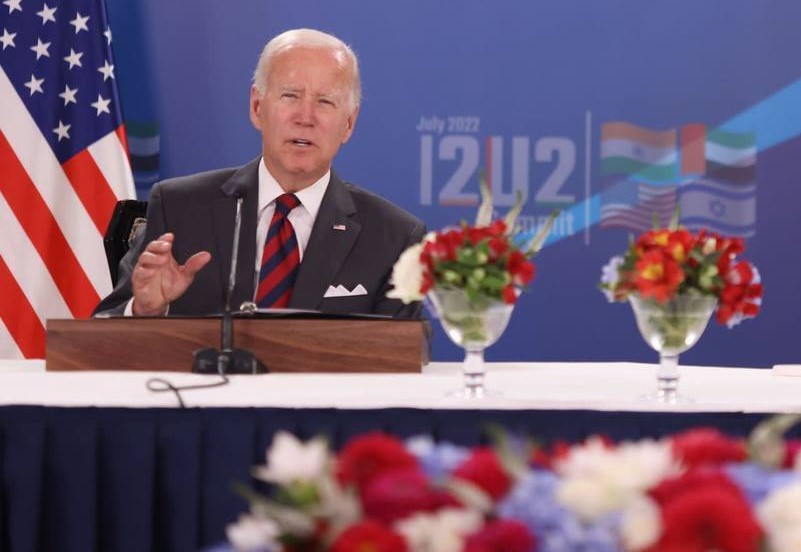
Israel Government Press Office/via Getty Images
President Joe Biden at I2U2 virtual summit last July in Jerusalem
A joint campaign by India, Israel, the United Arab Emirates and the U.S. to stimulate trade is picking up momentum.
Under the banner of the so-called I2U2 Initiative, business leaders from the four countries signed a memorandum of understanding last week pledging their cooperation in the project’s six target areas: water, energy, transportation, health, food security and space.
The heads of the UAE-India Business Council, the UAE-Israel Business Council and the U.S.-UAE Business Council approved the document calling for private sector involvement in the partnership, following up on the I2U2 Business Forum that was held in the UAE capital of Abu Dhabi in February.
Dorian Barak, co-chairman of the UAE-Israel group, told The Circuit that the four-way initiative is “emerging as an important pillar” of regional economic integration. “Israelis have long found India a very complex place to do business,” Barak said in an interview. “Some have succeeded magnificently, while many others are now finding that Dubai offers a simpler and more familiar way of engaging with Indian consumers and suppliers.”
Faizal Kottikollan, chairman of the Indian council, said in a statement that he was “committed to rally our members’ support behind this mini-lateral.”
The I2U2 group – a play on the four countries’ initials – was established in 2021 as an outgrowth of the Abraham Accords that normalized Israel’s relations with the UAE, Bahrain and Morocco. It was given a top-level boost during President Joe Biden’s trip to the Middle East last July, when he visited Jerusalem and met with Yair Lapid, who was Israel’s prime minister at the time. Joining them in a video conference from their home countries to launch the I2U2 initiative were Indian Prime Minister Narendra Modi and the UAE’s leader, Sheikh Mohammed bin Zayed Al Nahyan, now president.
Among the activities planned by the business councils, according to their joint statement, are promoting the I2U2 initiative with a series of events held in the four member countries aimed at stimulating commercial ventures. The councils intend to commission a series of papers by think tanks, scholars and thought leaders exploring business opportunities in the six target areas. Those would be supplemented by recorded video interviews made available on websites and other platforms.
In a Washington event to mark the agreement’s signing, the U.S. under secretary of state for economic, growth, energy and the environment, Jose Fernandez, praised the I2U2 as a good example of helping allies increase regional trade. Also present at the April 19 meeting in Washington’s St. Regis Hotel were Yousef Al Otaiba, UAE ambassador to the U.S.; Sripriya Ranganathan, India’s deputy chief of mission to the U.S., and Eliav Benjamin, Israel’s deputy chief of mission to the U.S.
The first project announced after the video conference in July was a $2 billion investment by the UAE in developing a series of food parks across India that would use Israeli and U.S. technologies to reduce food waste, conserve fresh water and use renewable energy sources. A second project is a hybrid renewable energy initiative in India’s Gujarat state to generate 300 megawatts of wind and solar capacity along with a battery system to store the energy. Last week, Abu Dhabi’s sovereign wealth fund Mubadala and Canada’s Columbia Investment Management announced that they have become anchor investors in Cube Highways Trust, an infrastructure investment trust in India.
Danny Sebright, president of the U.S.-UAE Business Council, said at the meeting that I2U2 ”is a unique partnership of key stakeholders, which will undoubtedly bring value to the business community and to our collective membership in all four countries.”
